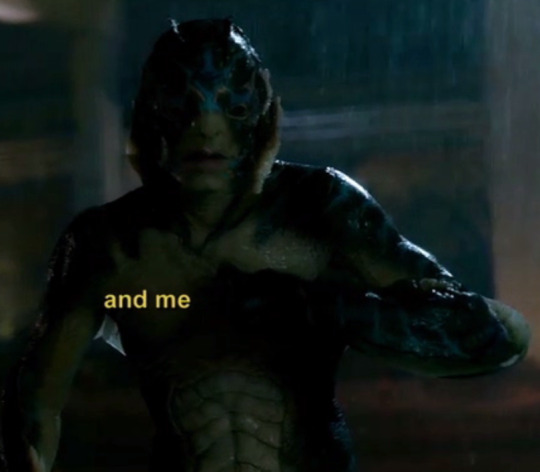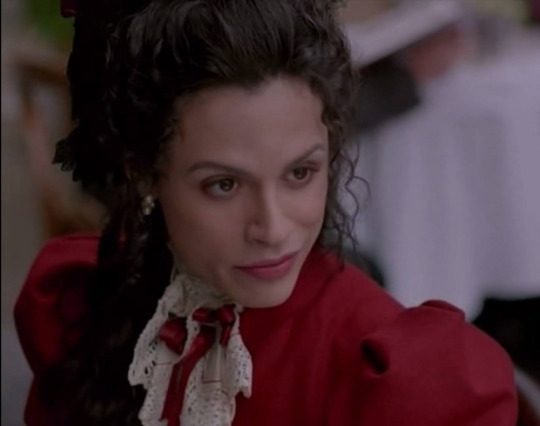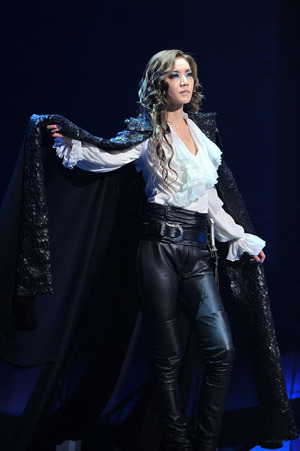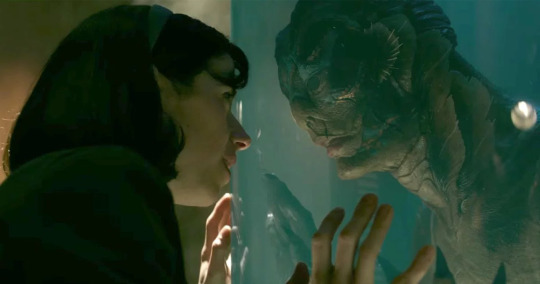#andersen should have taught his character sign language
Explore tagged Tumblr posts
Text
Ok, no matter how much I enjoy the Little Mermaid fairy tale, it is super ableist, like c'mon! If it was impossible to make feelings known without words there would be waaaaaay fewer shippers on this hell site than there is.
#which is why since in that ballet the author was an active part of the story#andersen should have taught his character sign language#that would have been more useful than the wave-y swimmung moves she was doing when telling prince her story#piper watches stuff and gets emotional
0 notes
Text
In defense of The Shape of Water (I can’t believe I have to post this...)
At first I thought I was looking at the occasional troll posts from people who just wanted to get a rise out of Shape of Water fans but as the complaints became more and more plentiful I started to wonder were they really trolls or people who just got the wrong idea from some poorly written articles about the content of the film? Perhaps people who couldn’t follow the sign language portion of the movie for whatever reason?

Warning: This post does contain spoilers and might contain some controversial content.
Okay, here we go...
Item one: Elisa did NOT take sexual advantage of a “helpless” creature.
This is somehow more stupid to me than the claims that Beauty and The Beast is stockholm Syndrome- which I also consider to be exceptionally stupid.
The complaint I’ve been seeing most is the one claiming Elisa “took advantage” of a “Poor, simple” or “Vulnerable” creature.
1. The Creature was learning sign language, very, very rapidly. He actually figured out that her hand motions were language impressively fast considering that no one else around him communicated that way.

He learned the word “Egg” within moments of meeting Elisa and was soon able to form full sentences in sign language. He learned sign language it faster than most adult human beings, proving he is actually highly intelligent- possibly of genius level intellect- either that or he’s subtly psychic / telepathic, which is not outside the realm of possibility. Though many wince at the comparison I have to make it here. He’s pretty much just a non-verbal Abe Sapien from Hellboy and Abe was an intellectual.

It’s actually quite ableist to dismiss or diminish a being’s intelligence just because he does not communicate vocally. Isn’t that what the antagonists often did to Elisa? Constantly underestimate her and judged by appearances?
2. Elisa did NOT “Rape” the creature. This is a hideous thing to play “Boy who cried wolf” with and I am frankly disgusted to see this claim floating around. You want to see a real example of a male victim of rape: I present Jamie from Outlander as an example of a victim of repeated forced sexual acts from a male and later a female character. One by physical force, the other by threat and coercion.

There are even warnings on some episodes of Outlander because it addresses the very serious trauma of male rape.
There is no rape in The Shape of Water. Elisa asked The Creature in sign language if he wanted to be with her. He gave her an affirmative response.

Not only that but his masculine anatomy is retractable. Later Elisa describes this to her friend, Zelda. His organ doesn’t just respond to physical stimulation, it can be hidden and “secured” by will. Also he has very powerful claws that very easily tore a man’s throat open toward the end of the film.

Not only is he physically capable of preventing unwanted sexual actions the scene in question involved a literal request for consent and an affirmative response. In fact, later he asks for her and him to be “Together” again via sign language.

3. No, the film does NOT promote beastiality.
_____
According to the dictionary:
bestiality bes·ti·al·i·ty (běs'chē-āl'ĭ-tē, bēs'-) n. The quality or condition of being an animal or like an animal. Conduct or an action marked by depravity or brutality. Sexual relations between a human and an animal.
_____
The Creature in The Shape of Water does not behave like an animal. Nor does he look like any real-world lesser lifeform. Intellectually he has human intelligence or above that. To call Elisa’s relationship with The Creature Beastiality you might as well claim a man who is attracted to a short, small chested woman, must be a pedophile even if she’s a consenting adult and his intellectual equal.
There is a terrible argument being presented about the film, claiming that some primates can be taught sign language too but that doesn’t make them human or human level intelligence. This is true however The Creature in this movie learned sign language faster than most humans. It takes years to teach primates sign language and even then their conversations are very simple and rarely progress past kindergarten level communication. The Creature in The Shape of Water was learning improbably fast, forming sign language sentences in days. And he figured out that her hand gestures were a form of language even though no one else communicated that way. That takes intelligence beyond that of a chimp or even most human beings who aren’t familiar with sign language. I would argue that not only does he have human intelligence it’s likely above human intelligence.
The claim that because someone is unable to speak out loud they must be simple minded is a cruel argument that has been harmful to mute people for centuries. It’s the view that mute people are seen as simple minded that is part of why cutting out someone’s tongue used to be a popular way to punish people who spoke out against those who were in power, whether politically or religiously. It was done because even if the victim found new ways to communicate they would be perceived (by many) as being simple minded because people associated not being able to speak with being dim witted. And unfortunately there are still people who think this way.

The subject even comes up with the mute slave class of the Avox in The Hunger Games, all punished political prisoners who have been rendered mute to prevent them from spreading their ideas. And even if they try to communicate who would pay attention to them now? It’s a form of culturally accepted ableism that unfortunately has existed in the real world for centuries and as detractors of the Shape of Water have proven, still exists today.
The word dumb even used to mean mute or unable to speak, hence the phrase “Deaf and dumb” or “dumbstruck.” It’s because being unable to speak had been associated with being simple minded that the modern version of the word dumb (to mean stupid) was able to take hold and thankfully we almost never hear it used anymore to mean mute. It is a disgusting and ableist argument.
Let’s use the Frankenstein Monster as an example of this. In Mary Shelley’s original novel when The Frankenstein Monster learned how to speak (within less than a year of him being created) he quickly picked up on German, French and English. He was extremely articulate and eloquent. he was even very old fashioned in his way of wording things. Even by early nineteenth century standards he was old fashioned. He even had a favorite work of literature that he often quoted, John Milton’s Paradise Lost.

However thanks to the Boris Karloff film everyone thinks of the Frankenstein Monster as simple minded and it’s not even really the Karloff film’s fault. There’s something very wrong with that conceit- that Karloff’s version of The Frankenstein Monster is simple minded. If you watch the original 1931 Boris Karloff Frankenstein movie and Bride of Frankenstein you realize that the Frankenstein Monster, who technically should be at infant level, intellectual development (since he was just brought to life), learned to say things like “We belong dead” in a few months. Now just imagine a three month old baby saying that. The baby would be seen as a hyper genius. Seriously depressed but a hyper genius. And yet because The Frankenstein Monster has an adult body (despite only being a few months old himself) people have repeatedly treated him as dim witted in parodies and even other film adaptations and sequels even though The Frankenstein Monster was supposed to be extremely intelligent and if you pay attention even the Karloff version was extremely intelligent with how fast he was learning. The simple fact that he started off as mute has caused this stereotype that The Frankenstein Monster is simple minded even though he is not dim witted at all.

Even Anne Rice is guilty of this with her own characters. She had a set of twins in her Vampire Chronicles, Mekare and Maharet. Maharet is a vampire who was blinded. Mekare was made mute. Maharet’s eyes were torn out and Mekare’s tongue was cut out to make her unable to speak. And yet Anne Rice had it that Maharet (the blinded twin) was intellectually perfectly fine. She even eventually gained sight through scientific means.

And yet poor Mekare was treated as simple minded by Anne Rice’s first person perspective narration from The Vampire Lestat and I don’t think it was just the character’s own bigotry. The characters of Maharet and Mekare were twins and before their mutilations Mekare was the leader of the pair, the more out-spoken. Her mutilation, and what she emotionally suffered after that, should not have diminished that aspect of her personality or rendered her simple minded. And yet Anne Rice, herself, repeatedly treated the character as animal-like because she could not talk. Mekare may have suffered more but there’s no reason her intelligence should have dropped off just because she was unable to talk and yet she was treated this way repeatedly by the protagonist and author.
Too many people associate ability to speak with being simple minded and do not even realized how ableist that truly is. They seem to do it unconsciously.
Those who paid attention to The Shape of Water realize the movie contradicted those old and misguided beliefs and misconceptions about beings that can’t talk out loud.
4. There are plenty of stories where a deity or mythological figure is unable to speak vocal human languages and I don’t just mean in Hans Christian Andersen’s the Little Mermaid. Date with an Angel (1980s movie) = The angel ate a cardboard container and could not speak. Dogma = God was unable to speak in the presence of mortals lest it would kill them. This is also true in some religious beliefs. That's why he had angels and other messengers speak for him. The Old Gods / Old Ones from the lore of H. P. Lovecraft usually cannot or will not speak human languages. In Disney's Gargoyles, Oberon took away The Banshee's power of speech as a form of punishment. In Disney’s Once Upon a Time and in the Little Mermaid Broadway musical The little mermaid was the granddaughter of Poseidon (The sea God) and she spends a great deal of the story mute (if not the rest of her life like in the original Hans Christian Andersen tale.) In Norse Mythology Loki (The Trickster God) spent a long time (likely centuries) unable to speak because dwarves forcibly sewed his mouth shut with an unbreakable thread. Afterward, when he was finally able to free himself, there were, forever, tiny scars around his lips from where the stitches had been. Neil Gaiman's Sandman = Morpheus refused to speak during his seventy-two-years in captivity by humans and Neil originally intended that Morpheus would only talk within dreams and possibly be unable to talk out loud in the waking world but Neil changed his mind by the second issue. In actual Greek mythology Morpheus (The God of Dreams) could not even take human form in the waking world. Also in Greek mythology Echo could not speak except to repeat what others said in her presence. Zeus liked to take away the power of speech as a form of punishment to people who told Harrah of his misconduct. He even had every nymph's tongue cut out so they couldn't speak of his affairs the way Echo had before her punishment. So in Greek mythology nymphs and Echo could not speak and Morpheus could not speak in the waking world. 5. Not only is The Creature in The Shape of Water NOT simple minded but he is revealed to be a REAL God. He wasn’t just worshipped by the natives as a God, he was confirmed as actually being a God. He’s not an animal. Nor is he “another species.” There are no other creatures like him. He is literally a God. When Strickland (the villain) dies his last words are “You really are a God!” He has healing powers. He can cause a bald man to grow hair. He can heal wounds. Just because he doesn’t look like what we consider to be a God doesn’t mean he isn’t a God.
And here’s a quote from the director / writer to prove it.
Quote:
“It is a river God. It’s not an animal. It’s a river God in the Amazon. There was never another one. There was him and Sally Hawkins put on Earth, and their entire existence they were going to each other. And they didn’t know. She was found in a river. No body knows who her parents were. She has these markings since she was a baby. He was in the river. The natives gave flowers. An American company came to drill oil. They killed the natives, saw the creature and said ‘Let’s cage it and take it out.’ That’s the story. And he’s been alone all of his life.“
Source: https://io9.gizmodo.com/if-you-wanted-to-know-where-the-shape-of-waters-fishman-1821051561
6. Apparently some people feel if you rescue someone that having the recued person and rescuer end up together is “wrong.”
So apparently it’s a thing to denounce romances if one person is “dependant” on the other. I understand the logic to this if the significant other is financially dependant on the other, or doesn’t speak the local language. If there’s no effort to make the person self-sufficient this can lead to a dangerous and potentially abusive situation.
The problem is this is being used too liberally. Let me explain. There is someone on here saying The shape of Water is bad even if The Creature is intelligent (which he IS! Confirmed several times over and now by the novelization which gives portions from his perspective) because he’s ‘dependant on Eliza” to escape the laboratory and hide.
...So?
She wasn’t going to keep him forever, cloistered in a giant swimming pool and fed treads. She wasn’t going to prevent him from learning about the outside world. She just planned to hide him until it was safe to help him escape to open water. She wasn’t a potential abuser waiting to take advantage of his “Helplessness.” In fact he was willingly staying there out of trust. He could have run away easily and was physically able to defend himself (as we saw at th end) but was choosing not to.
In the end she’s dependant on him to save her and heal her. In various faery tales the princess is rescued by the prince or in more modern ones the prince is rescued by the princess. Why is this a bad thing? The character can still give consent to a relationship or not. They aren’t beholden to their rescuer.
In the movie Thor you see Jane Foster rescue Thor from a hospital and later a government interrogation. Does this make Thor dependant on her?
In Neil Gaiman’s Sandman: Overture we learn that Alianora rescued Morpheus when he was held captive by the old Gods who took over The Dreaming.
These characters are not usually helpless. In fact these two characters I have listed are very proud quasi-mythological figures. They still have their agency. They aren’t going to suddenly be given to their enemies if they refuse their love interests. They still have choice.
If someone offers you a ride when your car breaks down, do you suddenly refuse to ever consider that person as a potential romantic interest because you were once “dependant” on them? Do you see how loosely this concept is being misused?
If a date prepares supper for you does that mean you were dependant on them for sustenance?
Because Eliza rescued The River God in The Shape of Water this is suddenly grounds for why they shouldn’t be a couple. ...Why? So what if he needed rescuing? She needed him to rescue her at the end. It’s mutual.
Outside of fantasies with damsels in distress (or princes in peril) sometimes we are dependant on others. And that’s okay. When it’s not a permanent thing it’s nothing to be ashamed of and yes, you can have a relationship with that person. It’s not suddenly ‘wrong” just because you felt you needed them at some point.
__________________________________________
Item 2:
There are (I kid you not) some complaints that the movie is ableist.
Now before anyone gets on any high horse and insist that I’m not the right person to address this (because this is Tumblr, a realm born of self-righteous anger) let me begin with Yeah, I AM disabled. I’m borderline legally blind and my eyesight is more likely to get worse rather than better. I’m looking at a nice, twenty inch computer monitor, set with large print text. I will never be able to drive a car. And I can’t read fine print very well. When I read comic books I have to use magnifying (over the counter / non-perscription) reading glasses or read the digital format versions or I am literally struggling to read. Prescription glasses will not help because what I have is optic nerve damage. The left eye is totally blind (though it sometimes picks up light). The right eye is far from perfect but it’s what I work with. And I grew up with friends and family members who have various disabilities of their own. Having a disability does not define you as a person but I think it does grant some sense of perspective here.
Besides the complaints claiming that Elisa somehow raped a God, who knew sign language, had physical means to defend himself, (can kill with the swipe of his hand), and not only gave consent but asked for sex later but there are also complaints claiming that the film is ableist...
1. I’ve seen people complain that the dance number fantasy is tasteless and that mute people never fantasize about being able to sing. Bullshit. Does anyone remember the episode of the TV series version of Disney’s The little mermaid with the deaf mermaid girl named Gabriella, who had an octopus interpreter? That was based on a real little girl who was a huge fan of the show and DID claim she wanted to be able to sing like Ariel.

http://disney.wikia.com/wiki/Gabriella
Not everyone who is disabled is perfectly comfortable with their physical limitations. Sometimes we DO fantasize about what we can’t have. We’re not always perfect in how we think or behave- we are human after all. We’re not always perfectly comfortable with who and what we are and it’s not just the rest of the world that “doesn’t get it.” Sometimes we DO want what we don’t have and that’s perfectly okay. That’s normal. That’s human. And it’s okay to feel that way. There’s nothing wrong with feeling this way. And whether fictional or not Elisa shouldn’t be shamed for her fantasy just because she sings in the fantasy.

I’m pretty sure we don’t have wings but how many of us dream of flying? For a disabled person dreaming about the ability you lack is common. There are people who claim that if you are blind from birth you never dream of sight. I and other visually impaired people can tell you this is actually not true. Just because people with perfect eyesight can’t fathom it doesn’t mean it does not happen. I have dreamt of seeing with both eyes and have a pretty good idea of what it would be like even though I have never physically seen through this left eye.
Also Elisa’s fantasy wasn’t specifically about being able to speak or sing. It was a reenactment of a musical number she saw on TV with her friend, Giles. It wasn’t even really about being able to sing. It was about wanting to express how much she loved The Creature. I don’t know how people missed that point.
And no, she didn’t talk “just fine” at the end of the fantasy. That was just meant to be a gradual transition back to reality. It was just a fantasy.
2. The complaint about Elisa’s fantasy lead into the complaint “Every time a disabled person is shown in a film they have to be made able to walk, or made able to see, or speak, before the movie’s over.”
Yes, I hate that too when it happens...
I grew up with the annoying concept in the back of my mind that “You won’t have your happy ending until you’re like everyone else.” That’s why I thought Quest for Camelot was surprisingly refreshing that Garrett never got his sight back. Some people were angry about that but I was glad. It showed that you CAN have a happy ending without the miraculous “cure” being part of it.

There’s a Good Times animated version of The Little Mermaid where though The Mermaid gets the prince, she never does get her voice back and... I’m perfectly okay with that. So what if she’s mute? She was happy. She had her prince and she finally got to be human, what she always wanted anyway. And she didn’t need her voice to triumph anyway.

But no, Elisa never does gain a voice by the end of the movie. And no, it does NOT confirm that she was “never human be to begin with.” I hate that “Interpretation.” Again, see the quote a previously posted. That quote establishes that The Creature is a river God and there really are no others like him. He does not represent some lost race and she was not of that race. She’s his soulmate. It’s as simple as that. He gave her gills so she could come with him into the water. But he didn’t think she needed a voice and neither did she. As I said before, the fantasy sequence was not even really about her wanting a voice, but wanting to express how much she loved him. That is all. That’s why the song used in the scene is “You’ll never know.”

3. This is tied to the ableist nonsenses. People have ACTUALLY complained about Elisa spelling out F-U-C-K you instead of just giving the sign for “Fuck.”
Now, I’m not completely fluent in American sign language (ASL), I only know a little bit but it’s my understanding that there are at least four gestures that mean “Fuck” or similar and at least one for “asshole.” And people are actually complaining that she didn’t use the common sign for “fuck.” Here’s the thing, folks. Sometimes we deliberately want to stretch out what we’re saying, to savor the moment, and sometimes we deliberately spell our words out instead of just saying the word. Or sometimes we avoid swears by spelling them out instead of saying them. Sometimes it makes the word more potent if it’s spelt. If you can’t annunciate stretching out the word, spelling can work to compensate. Like writing “Oooooh” to indicate a gradual realization instead of “Oh.”
We (those of us with normal functional vocal cords) sometimes do the spelling out thing. (“Stevie and Bucky sitting in a tree. K-I-S-S-I-N-G.”) so why is it suddenly wrong if a mute girl does that too? Isn’t it actually ableist to presume she wouldn’t / couldn’t express herself that way?

4. There are some people complaining that the film should have used an actual mute woman in the role and that there are plenty of disabled actors out there who need the work. There are a few people saying that Sally Hawkins having the role of Elisa is “offensive” and “Ableist.”
Yes, there are disabled actors who need the work but in the case of Elisa, an actress is needed who fit the physical body type that was desired by Guillermo del toro, and you would add on that she would have to be mute but not deaf, and could swim / had no aversion to water. And also had no modern accoutrements to accommodate for the muteness, and was fluent in American Sign language specifically, and could be extremely expressive in their acting as well as learning complex dance moves. It’s not impossible but it would have been very difficult.
I’m not saying a real mute person can’t do the role. I’m just saying that such a role could be difficult for anyone.
As I am possibly ill-suited to judge, I have consulted with verbal and hearing impaired friends that I grew up with on Long Island, and none of them were offended by Elisa. In fact most of them love the character.
With the online complaints that they should have used a mute actress, I saw similar complaints about Angelique in the TV show Penny Dreadful, how she should have been played by an actual Trans woman.

Normally I would see nothing wrong with wanting that but Angelique was a Trans woman in the late nineteenth century- a time when there were no Transition surgeries, no hormone treatments, and there was going to be at least one scene of Angelique not presenting herself as female. This could be traumatic for a Trans actress and requires some specifics that might be seen as troubling, difficult, or impossible for many real Trans actresses. No, not impossible, but definitely difficult if you want realism for someone of that time period trying to present themselves as the gender their soul is but not their physical body. I’m not saying a real Trans woman can’t do it, but it might be very difficult for her and praise for any Trans woman who would take on that type of role.
And here’s a very real question. If we only cast real mute people, or real gay people, or real (insert minority thing here) how long until it’s no longer acting? Yes, gay, disabled, ect, actors of minority backgrounds should be cast for the roles that fit them when they are available but you would be surprised how often they don’t actually come to casting calls. I was made aware once of a play that featured a blind character and literally only one blind actress showed up for the casting and she wasn’t very good at acting either, no matter how much they tried to coach her and she refused to learn the lines. She felt she deserved the role simply for being blind, and didn’t care about the actual acting part.
If we are strict and specific in casting where do we draw the line? Do we stop letting people dye their hair for roles? Do we insist short actors can’t take tall roles anymore? Do we require blue eyes when blue contact lenses are readily available? Do we tell women like Wao Yoka (a popular Japanese theatre actress) that she can’t play male roles because there are plenty of male actors who want the part?

Where do we draw the line? I know that despite my poor eyesight I’m not offended by Charlie Cox as Daredevil.

Yes, I would like to see more actual disabled actors in Hollywood but it’s not that people refuse to cast them. It’s just that not as many people with disabilities make the effort to take the big roles as you may think. If you don’t believe me, check out any open casting for a disabled character role and look how few actual disabled people show up at the audition.
Also we tend to take for granted when celebrities shine that do have disabilities. And often no one thinks of them as disabled. Look at David Bowie for example. David Bowie had no depth perception due to damage in his left eye. When he was in a production of The Elephant Man they pushed back the sets because he stumbled off the stage. For yearsm before David Bowie died, he had a book of his own song lyrics with him whenever he performed and the lyrics were all in large print.

It’s actually good thing that there are quite a few disabled people in Entertainment that no one considers disabled. William Shatner has Tinnitus, Stephen King has deteriorating eyesight, Michael J. Fox has Parkinson’s Disease, Millie Bobby Brown is deaf in one ear, Lou Ferrigno is hearing impaired. And most of these actors (and writers) play or write characters who don’t even have the disabilities they have. Their disabilities don’t define them.

If we create an obligation that characters like Elisa have to be played by a disabled person then what? Do we stop letting Millie Bobby Brown from playing characters who use both ears? Do we stop letting gay men play straight characters? Do we forbid Trans women from playing cis women? Where do we draw the line? Isn’t the whole point of acting to become something you really aren’t? To transcend from yourself into new experiences and identities outside of what you know in your day to day life?
Note: I do not think of being gay as a disability. Nor do I think of being Trans as a disability. I only bring up Gay and Trans roles because I have seen that argument before about Gay and Trans characters and how they should only be played by real Gay people and or real Trans people.
Yes, I agree that more actual disabled, actual Trans, actual minorities of various types, should be cast in Hollywood, but it’s also okay when those cast are not playing roles specific to their “Minority status.” If a disabled person plays someone who doesn’t have their real world disability- great. If a Trans woman plays a Cis woman- great. If a gay man plays a straight role- fine. And I don’t think people like Sally Hawkins should be penalized because she’s not really mute. That’s not fair. All roles should potentially be open to anyone. Perhaps it’s not popular to think this way, but I do.
5. It’s when beautiful films The Shape of Water are discredited as Abelist that Hollywood gets discouraged and stops trying to represent characters like Elisa in Hollywood and frankly I think we need MORE characters like Elisa in Hollywood. She’s not just a strong disabled character. She’s not just a strong woman character. She’s a strong character, period.
Elisa is clever. She’s cunning. She is brave. She is warm. She is caring. She is compassionate. She’s kind. That’s important. She’s kind. You don’t see that too often with Hollywood’s idea of “strong” female characters anymore. They tend to treat kindness like a weakness. Elisa is kind. She is beautiful in her very soul. She is open minded. She does not judge by appearances. She isn’t a bigot. She likes eggs. She hates Key Lime Pie. She has a fondness for old musicals. She does not like to be ignored but is patient for her friends. She does not abide injustice if she can help it. She’s not afraid to speak her mind. She’s poor, working class, but not at all stupid or complacent with her place in the scheme of things. She’s an orphan. She has no family. She’s not afraid of her own sexuality. She has the heart of a secret agent and the tenacity to fool the world. She’s such a great person that she wins the admiration, respect, and love of a God, a God that SHE rescues. She’s more well developed than most Hollywood protagonists today.

Also Elisa’s actress, Sally Hawkins, is nearly forty-two-years-old. Hollywood still has that sexist / agist stigma that most female protagonists (particularly in love stories) have to be in their late teens or early twenties. This character broke a LOT of barriers and should be celebrated not scrutinized and criticized.
______________________
Conclusion:
Honestly, most of this defense of The Shape of Water should have been common sense. The Shape of Water is a gorgeous movie and very respectful to people with disabilities. There was nothing wrong with Elisa. Her true love just happens to be an aquatic God who didn’t know human languages.
And again, just because he got captured and doesn’t look human doesn’t mean he’s not a God.
Ever read Neil Gaiman’s Sandman?

The first issue of Sandman: Prelude and Nocturns features Morpheus (the ruler the dream realm) trapped in a giant glass bubble in a magical binding circle. He was kept naked and held prisoner that way, dehumanized, for seventy years in the basement of an occult organization’s main house. And he doesn’t speak during his entire captivity either.

He was the prisoner of the group that summoned and trapped him. And he looked like an emaciated, naked, alien, with chalk-white skin, wild-dark hair, and sold black eyes. In short, he looks humanoid but not precisely human, much like The Creature in The Shape of Water.

Sometimes deities don’t look the way we expect and it’s human arrogance that makes us not realize their true power. Isn’t that also what happened to Jesus in Christian lore? That he wasn’t recognized for who and what he truly was because of his humble appearance?
The Shape of Water has the same lesson we’re supposed to learn with Beauty and The Beast. Don’t be deceived by appearances. And yet I think many did judge and made assumptions by appearances in regard to The Shape of Water . And that is both ironic and tragic.
In the case of The Shape of Water, I urge you to watch the movie for yourself. It’s a gorgeous film. It deserves the praise. And don’t judge it because you saw some pretentious and self-righteous blog post bashing it based on misinterpretation or hearsay. That is all.

#Shape of Water#The Shape of Water#Sally Hawkins#Elisa#Eliza#Elisa Esposito#Eliza Esposito#Guillermo del Toro
26 notes
·
View notes